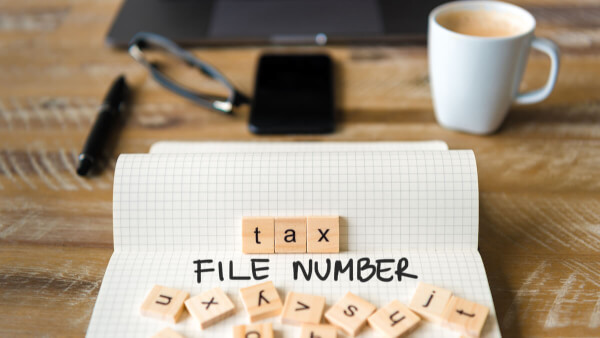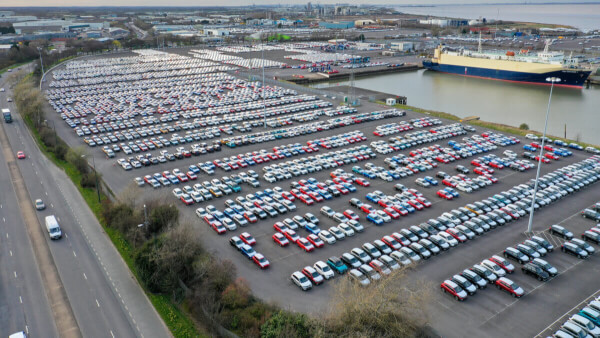Japanese international schools in Sydney. A quick guide
If you’re a Japanese expat looking to move to the Sydney area, you may be interested in looking for a Japanese school for your children. You may be keen for...

Australia is a place of abundant sunshine and stunning natural scenery. If you love being outside, Australia might be the perfect home for you. The Land Down Under, however, has the 12th highest cost of living in the world. Can you live in Australia on its minimum wage? Read on to learn what you need to know about the minimum wage in Australia.
Australia’s minimum wage is currently $18.29 per hour or $694.90 per 38 hour week (before tax).
In Australia, the minimum wage is determined by the Fair Work Commission’s (FWC) Expert Panel, which reviews minimum wages received by employees in the national workplace relations system each year. The review takes several things into consideration. It will look at written submissions from people and organizations, saying whether they think the minimum wage should change or stay the same. The panel will also commission research and consult economics experts before making a decision. After doing its review, the panel releases a national minimum wage order, and the new minimum wage goes into effect on 1 July each year.
Australia’s minimum wage was most recently raised on 1 July, 2017, when it was increased from
$17.70 per hour to $18.29 per hour.
No, Australia does not have different minimum wages for its different states. There’s one national minimum wage that applies to the entire country.
Australia does have different minimum wages for underage workers or any workers who are under 21 years of age, in some industries. Generally, depending on their age, underage workers will be paid a percentage of the adult pay rate; for example, a 17-year-old retail worker in Australia is entitled to 60 percent of the adult minimum wage. One the day that retail worker turns 18, he or she becomes entitled to 70 percent of the adult minimum wage. The worker would be entitled to an additional 10 percent increase on each birthday until he or she turns 21, which is considered of age in Australia, and would then be entitled to the full adult minimum wage.
In some industries, however, junior wages don’t apply. Australia’s Fair Work Ombudsman provides a calculator on its website for seeing what minimum wages underage workers are entitled to, depending on the industry and their age.
Apprentices and trainees can be paid a different rate than the minimum wage in Australia, but only if they have a formal training contract with their employer. These rates vary depending on the age of the apprentice or intern, whether he or she is still in school at the time of the apprenticeship or internship, and what industry the work is being done in. Fair Work Australia provides a pay calculator on its website that can help determine what wages apprentices and interns are entitled to.
Australia has had some form of minimum wage since the 1890s when industries started setting their own minimum wages following worker protests over poor working conditions. The minimums set at the time varied, but were as little as three shillings per day, with no limit to how many hours were worked in a day. Australia’s current Fair Wage Act, which introduced a panel to review and decide on increases to the minimum wage each year, was passed in 2009. Since then, the panel has approved increases of 2-4 percent to the minimum wage each year.
All citizens and permanent residents of Australia and New Zealand qualify for national healthcare, regardless of their income. However, public healthcare in Australia doesn’t cover the cost of treatment at private hospitals, so many residents purchase supplemental private healthcare plans. The cost for these plans is set by the companies that provide them.
Australia is the 12th most expensive country in the world to live in. The overall cost of living is 9 percent higher than in the US, but 10 percent cheaper than London. Things like groceries and restaurant meals can be very pricey in Australia, but the country’s minimum wage is also higher than in many other places. Australia boasts salaries 25 percent higher than their British counterparts, and Australia has a higher minimum wage than both the UK and the US.
You can send money abroad by making international money transfers through your bank, or you can use Wise. Banks often make money by marking up the exchange rate on international transfers, but Wise gives you the real mid-market rate — the same exchange rate you see on Google — so you know you’re getting the best possible deal. There are no hidden fees or markups; with Wise, you just pay a small, fair transfer fee that’s spelled out upfront.
Wise also offers borderless multi-currency accounts, which allow you to send, receive and manage money in multiple global currencies all at once. If you live in one country but work in another, you can get local bank details in the US, the UK, the EU or Australia so you can get paid like a local, without paying expensive international fees to send or receive money abroad.
Whether the minimum wage is “good” really depends on the cost of living in any given country. But here’s how Australia’s minimum wage compares to other parts of the world.
| Country | Minimum Wage (in US dollars) |
|---|---|
| Australia | $508.88 per week |
| Canada | $7.93 - $10.68 per hour |
| Germany | $1,769.80 per month |
| United States | $7.25 per hour |
| United Kingdom | $9.93 per hour |
| Norway | No legal minimum wage |
| France | $1,748.85 per month |
| Singapore | No legal minimum wage |
| Dubai (UAE) | No legal minimum wage |
| Belgium | $1,846.11 per month |
Think you can make a living in Australia? With all this information about the minimum wage, you’re ready to decide for yourself whether Australia is the right future home for you. Good luck with your move!
*Please see terms of use and product availability for your region or visit Wise fees and pricing for the most up to date pricing and fee information.
This publication is provided for general information purposes and does not constitute legal, tax or other professional advice from Wise Payments Limited or its subsidiaries and its affiliates, and it is not intended as a substitute for obtaining advice from a financial advisor or any other professional.
We make no representations, warranties or guarantees, whether expressed or implied, that the content in the publication is accurate, complete or up to date.

If you’re a Japanese expat looking to move to the Sydney area, you may be interested in looking for a Japanese school for your children. You may be keen for...

Looking to move to Sydney and want to know the various costs of living? Here’s what it costs to live in Sydney.

Looking to move to Melbourne and want to know the various costs of living? Here’s what it costs to live in Melbourne.

If you’re an Australian citizen, or if you live and work in Australia as an expat, then you’ll likely want to get a tax file number (TFN). Having a TFN helps...

Looking for student job ideas you can do while you study in Australia, here are some for you as well as what you need to know to get started.

If you’re making the move to Australia from the UK or have an appreciation for British cars, then you might be considering importing a car. This article will...